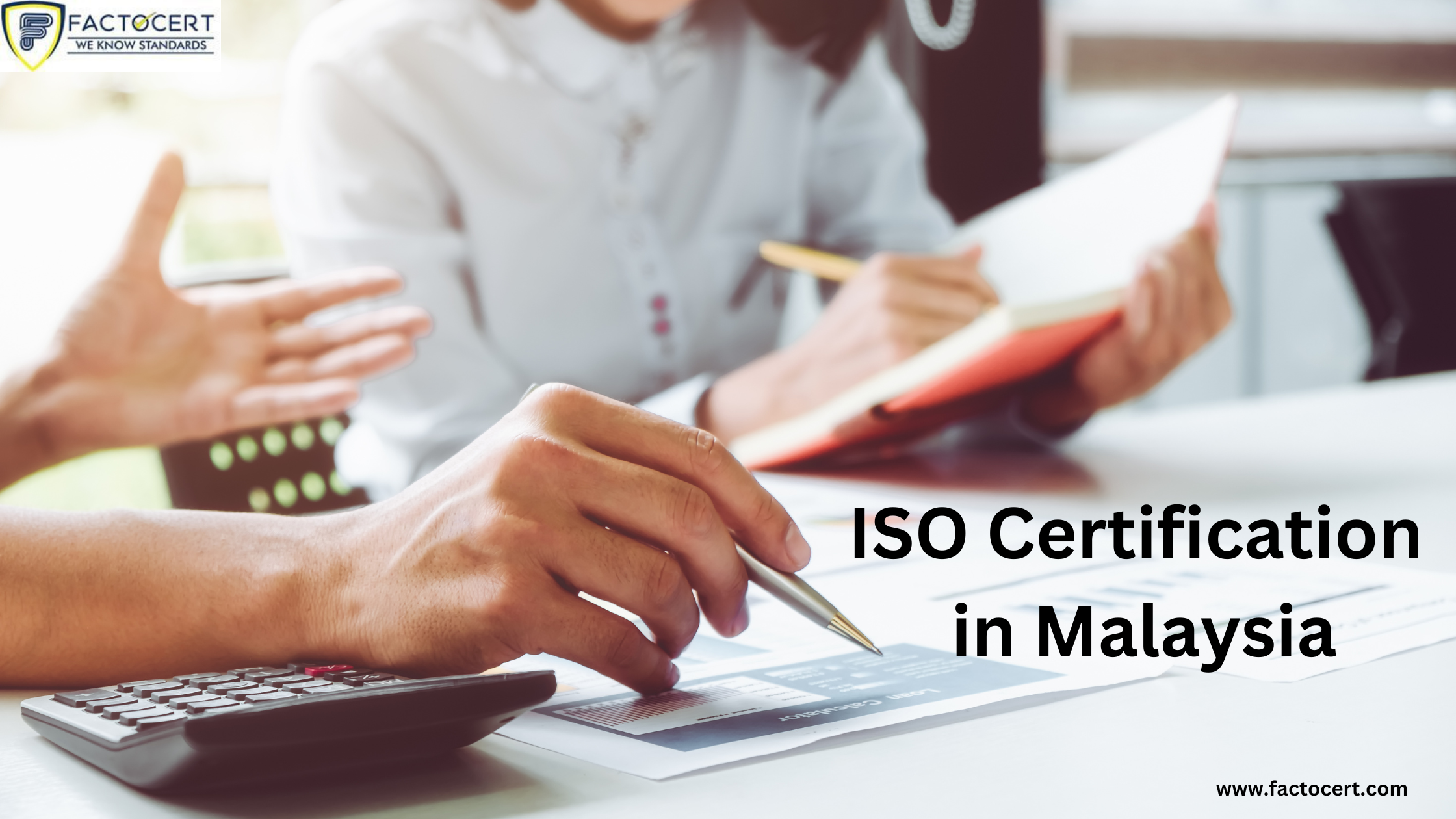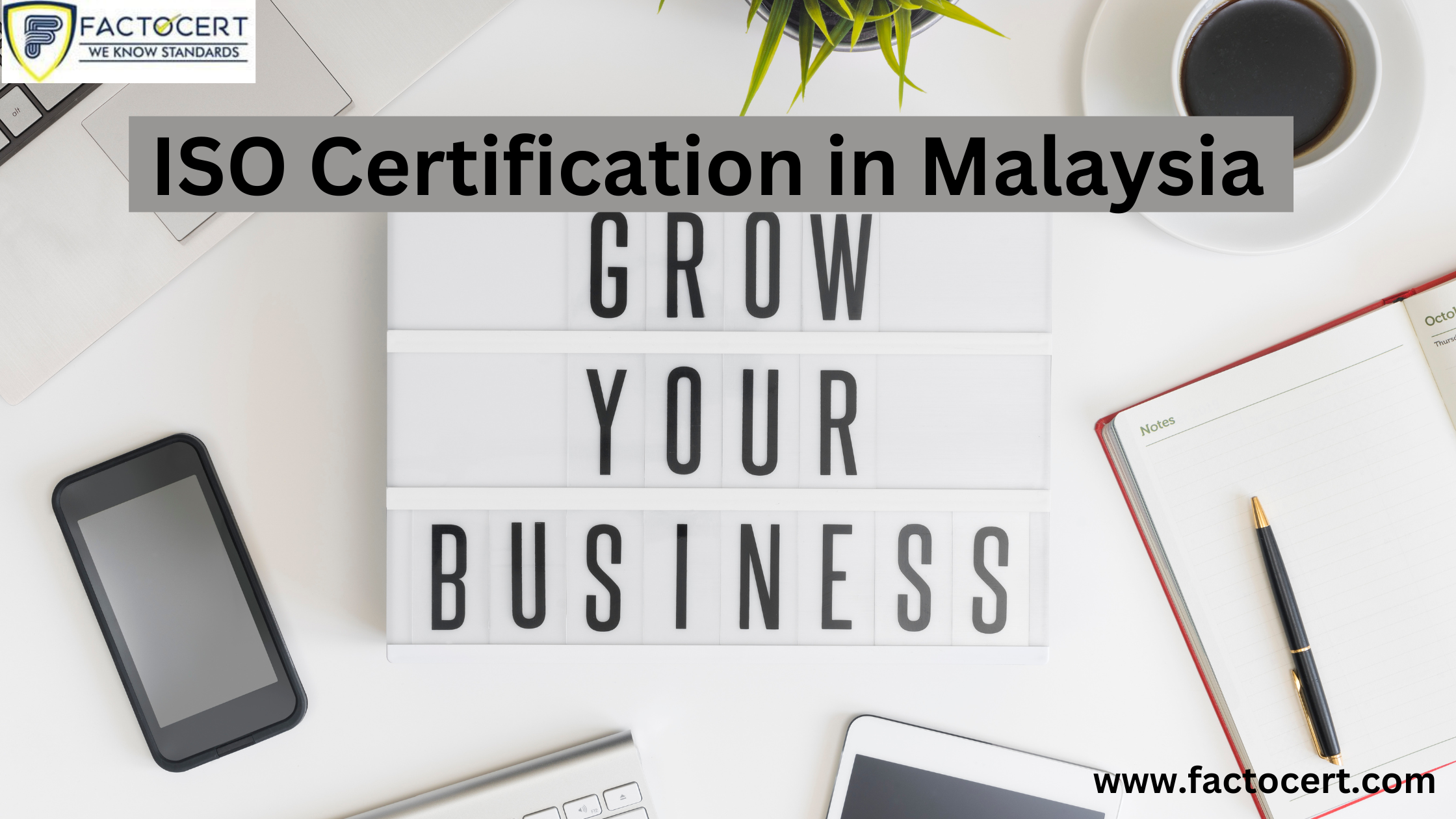The ISO 9001 Certification in Malaysia is the globally accepted standard that lays out the specifications for quality management systems (QMS). Companies use the standard to show that they can reliably provide products and services that adhere to legal and customer requirements. The only need for firms to obtain certification is this standard, which is the most sought-after in the ISO 9000 series.The International Agency for Standardisation (ISO), a global organisation composed of national standards organisations from over 160 countries, published ISO 9001 for the first time in 1987. The most recent version of ISO 9001 was released in 2015.More than a million organisations have implemented ISO 9001 globally. Companies such as yours use it to continuously monitor, control, and improve the quality of their products and services.It's an effective tool for company growth, offering the structure and direction needed to consistently meet client demands and legal obligations.In Malaysia, QMS has awarded over 18,000 ISO 9001 certificates to clients that have demonstrated exceptional managerial abilities.
What is involved in ISO 9001 Certification in Malaysia (quality management system)?
An ISO 9001 QMS contains the policies and procedures for accomplishing quality targets and advancing an organization's goals. Based on the seven pillars of quality management, ISO 9001:2015 describes how an organisation should cater to its customers' and other stakeholders' needs.concentrate on the client"Leadership People's Engagement" Technique for Managing Improvementdeciding using the available datasupervision of relationshipsTen clauses known as Annex SL comprise the framework utilised by the ISO 9001 Certification in Malaysia. Annex SL covers four primary categories:One of the QMS domains that you and your management team ought to concentrate on, participate in, and take responsibility for is resource management. We call this managerial responsibility. How infrastructure, staff, and facilities are arranged to provide the highest level of performanceProduct Realisation: details on how your business will run to deliver an exceptional service or goodEvaluation, Interpretation, and Improvement of Measurements How can you assess whether your management system is meeting its objectives and facilitating continuous improvements?
What advantages do businesses who hold ISO 9001 certification in Malaysia enjoy?
An integrated approach to improving operations, services, and products is provided by an ISO 9001 certification in Malaysia (quality management system) that can be implemented by organizations in Malaysia. By demonstrating your commitment to quality and customer service, the ISO 9001 certification in Malaysia raises your company's trust with stakeholders and customers. Businesses may improve processes, motivate employees, and help them develop their leadership abilities with the help of an effective QMS, all of which contribute to the growth of your organisation.A few advantages of ISO 9001 Certification in Malaysia are:more productivity and more reliable results.more satisfaction and loyalty from clients.Analyse cost savings through the efficiency of the process.Improved planning, management, and communication methods.Show that you are following the criteria relating to quality.Determine and address quality-related problems that affect your company.Make more decisions based on data to improve the operation of your business.
How can I locate ISO 9001 Certified professionals in Malaysia?
Our company is a well-known worldwide supplier of consultancy services and ISO 9001 Certification in Malaysia.ISO 9001 Certification in Malaysia is in place for Malaysian procedures.
- Analysis of Gaps
- Supporting Information for Training Documents
- MRM, Internal Audit, and Final Audit
We assist our ISO consultants in Malaysia with ISO 9001 Certification in Malaysia by using this method. The plant is the top ISO 9001 supplier in Malaysia. We might be able to offer ISO 9001 Certification in Malaysia cities along with documentation, audits, training, and other services at a reduced rate.We provide professional services all day and all night.For More Information Do Visit : ISO 9001 Certification in Malaysia Related Links CE MARK Certification in MalaysiaISO 14001 Certification in MalaysiaISO 22000 Certification in MalaysiaISO 27001 Certification in MalaysiaISO 45001 Certification in MalaysiaHALAL Certification in MalaysiaISO 9001 Certification in MalaysiaISO Certification in MalaysiaISO 13485 Certification in Malaysia



